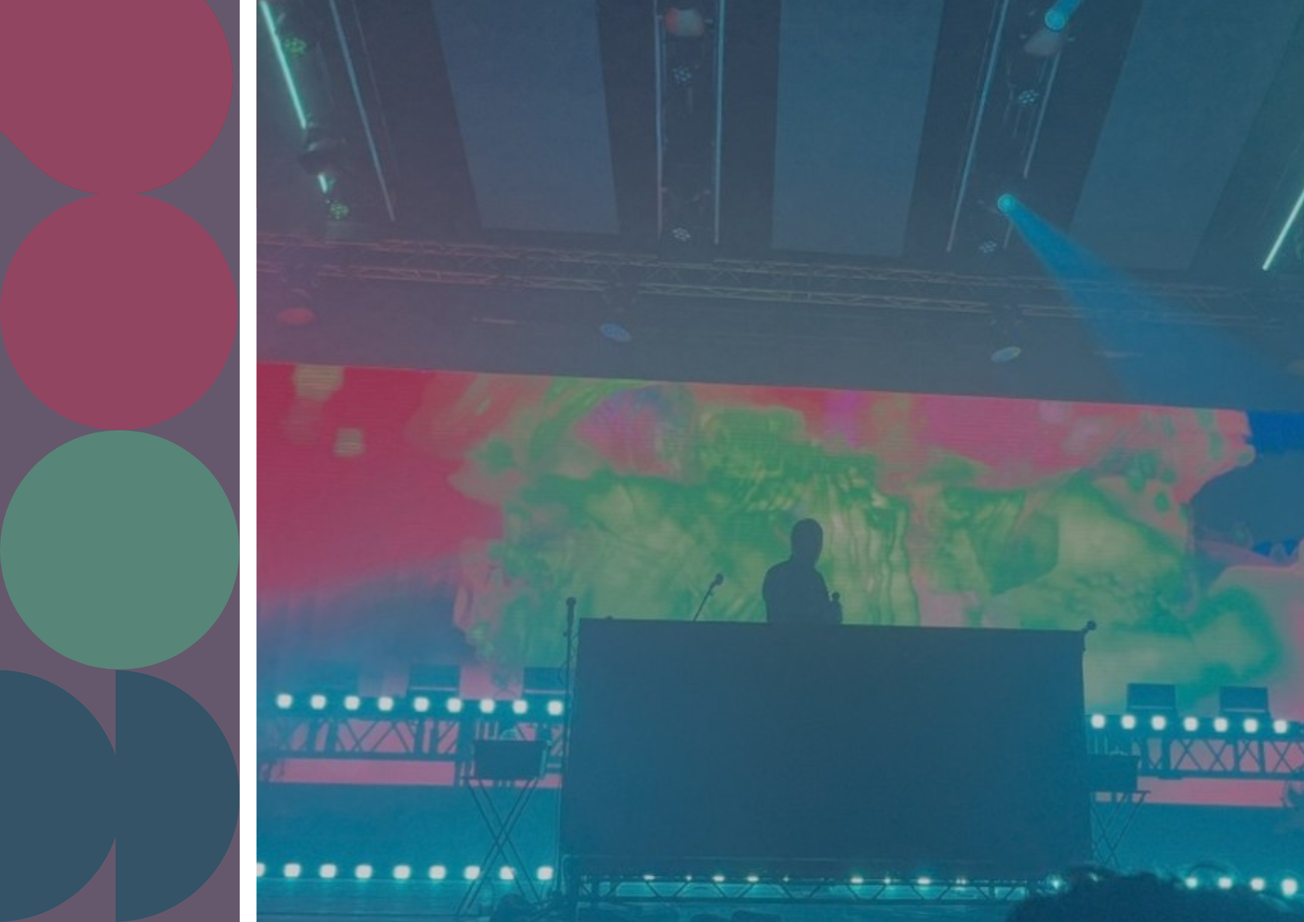By Guy Marcham, Deputy Music Editor
SEED Ensemble's Cassie Kinoshi sits down with Epigram Music to talk about the importance of community, being nominated for a Mercury Prize and her obsession with Sci-fi.
A meteor thunders through a star-lit freckled sky. A blast – it fires an untamed furnace of spiky edges and red-hot darts. A celestial soundscape of wonder and amazement. A carnivorous soundscape of ambition and battle. The meteor paces uncontrollably, capturing the emblems of its past among a cascade of fury. It hurtles too towards a future utopia. A utopia of free expression and open embrace. A meteor made up of anger, burning passion, layered pleasures, demanding cacophonies and frenetic thrill. Its glow beams and enriches an overriding fear. A fear of distance. A fear of the unknown. A fear of understanding one’s own place and history. With a spark and flicker they all seem resolved.
SEED Ensemble are this mighty meteor. Their jazz arrangements illuminate space-induced rhythms. Rather than float through atmosphere - they soar. Their music culminates in an impassioned verse. A sentiment of journey, of ambition, and of building upon their past to create an entirely new vision. Epigram Music caught up with the ten-piece Jazz act and their lead composer and saxophonist, Cassie Kinoshi. She was in high spirits - a giggling and exuberant speaker. But, one who spoke with eloquence, fretting over each word and phrase. Bubbling with ideas and purpose but neatly composed and assured. It’s clear to see where the creative licence of SEED Ensemble stems.
Kinoshi originally grew up in Hertfordshire but has since found her voice as a result of moving to London. ‘In Hertfordshire there’s not really anything. It’s in the middle of the countryside (…) I was part of local wind bands and my parents were very supportive and took us to gigs. But, I think in London we’re quite spoilt with how much art there is’. It was in London that Kinoshi joined a vibrant community – one centred around jazz, following each other’s creative ideas and numerous musical influences. Not only does Kinoshi lead Mercury Prize nominated SEED Ensemble but she also lends her capable talent to the joyous afro-beat flurry of Kokoroko and the nuanced guitar fluidity of Nerija.
Not only does Kinoshi lead Mercury Prize nominated SEED Ensemble but she also lends her capable talent to the joyous afro-beat flurry of Kokoroko and the nuanced guitar fluidity of Nerija.
‘I think fundamentally it’s based on community and collaboration. I think jazz music is very much about those two things. The London jazz scene that I am part of, we have already known each other for a decade, so we have grown up together and have been playing together for years. It is very much a group of friends making music together.’

Each jazz act that Kinoshi plays alongside are effortlessly unique. ‘As part of Kokoroko we’re always dancing on the stage – It’s a party’. However, Kinoshi describes SEED Ensemble as a much less danceable act. ‘I wouldn’t say its music you necessarily get down to’.
SEED Ensemble instead reflect a sense of innate spirituality. An act that whole-heartedly embrace the political, as seen on ‘WAKE (For Grenfell)’. An act that embrace a sense of futuristic experimentalism, as heard on ‘Afronaut’. They take past stories of black British upheaval and translate them to a new audience. Their musical patterns are euphoric, yet deftly mystical. Listening to SEED Ensemble is as if looking up in awe at a sparkling night-time sky. The mind flickers with questions and thoughts – a valuable search for meaning within each individual fold. An act that stirs you into imagination. An act that stirs you into a gentle sway rather than a hedonistic and hip-swinging frenzy.
This is perhaps a result of Kinoshi’s love for fantasy and sci-fi. A further illustration of her vibrant imagination, free to form new worlds and improvisations. ‘The particular piece (‘Afronaut’) is dedicated to the sci-fi writer, Samuel Delaney. I recently discovered him and have since admired his work and him as a person. So yeah, just sci-fi in general for enjoyment I’m interested in but also learning more about afro-futurism and how that relates to what I was writing. The idea of ‘otherness’, being alien and coming from far away links to a lot of the feelings and experiences you have as a British person that has a heritage from elsewhere.’
Kinoshi’s interest in space, fantasy and sci-fi is far from escapist. Instead, it is fiercely political. She engages in feelings of ‘otherness’ and alien experiences – linking far away remote space-age galaxies to the distant and at times socially alienating shores of Britain. The experiences of first-generation and second-generation immigrants are pronounced and elevated. A statement of assimilation or for better words – the failure of Britain to accept, tolerate and celebrate its rich diversity.

‘The name SEED Ensemble. I wanted the word Seed present - like we’re planting a seed of awareness. The reason why a lot of the compositions are political is because I wanted to write music which highlighted a lot of the issues which are prevalent today in British society and continue the necessary conversation.’
Kinoshi’s idea of opening up political discussion regarding black identity and the layers of societal and institutional racism has become ever more pressing and necessary. She notes the backlash concerning Stormzy and his comments regarding Britain’s racist undertones and proclaims that as a result further discussion is required. ‘I think there is a backlash (…) a lot of British people don’t want to accept that we do have issues that America is really obvious about’.
‘I enjoy writing music that is about bringing awareness to how our country does run and the systemic issues that do exist. But, I am also celebrating my heritage, the heritage of a lot of people in the band and what it means to be Black British citizen in particular.’

SEED Ensemble and jazz in particular have been finding voice within the ranks of British youth. The genre has bounced back with renewed vigour and purpose, typified by the likes of The Comet is Coming and Sons of Kemet. Kinoshi embraces this transformation in jazz: ‘In the UK, jazz is often seen as very elitist genre of music where you go to certain venues and sip cocktails and dress up. A lot of the newer venues like Jazz Refreshed and Good Evening Arts in New Cross have gone back to the community aspect of jazz, where it is for everyone. There is a connection between the audience and the people on the stage. You don’t have to pay tonnes and tonnes of money to go and see it. It is more accessible in that kind of way.’
2019 proved a momentous year for SEED Ensemble, in which they released their debut album, Driftglass, which won several accolades and was nominated for the prestigious Mercury Prize Award. Kinoshi seems humbled when I bring this up. ‘It was nice to reach audiences we may not have reached with it because a lot of people who focus on the Mercury Prize are from pop industries, so having that acknowledgment was quite nice to receive’. However, she is also quick to note the idea of a ‘token jazz’ act present at the awards ceremony each year.
This underplays the momentous brilliance of SEED Ensemble. A politically engaged, exuberant and spiritual jazz act. An act who take you on a journey. A journey that is showing zero signs of slowing down. As Kinoshi gears up for her upcoming tour with the 10-piece band, she too speaks enthusiastically of future projects and ambitions. In a couple of months, she is deep diving straight into writing a score for the Ballet Boyz. Kinoshi also sets her horizons on curating film and video game scores – a result of her burning passion for sci-fi and fantasy games. It seems Kinoshi can just about try her hand to anything. The busier the better is seems – and who can blame her? A creative mind bursting with ideas, soundscapes and stories, tying together intergalactic realms with racial injustice.
Featured Image: Image: Black Arts PR






